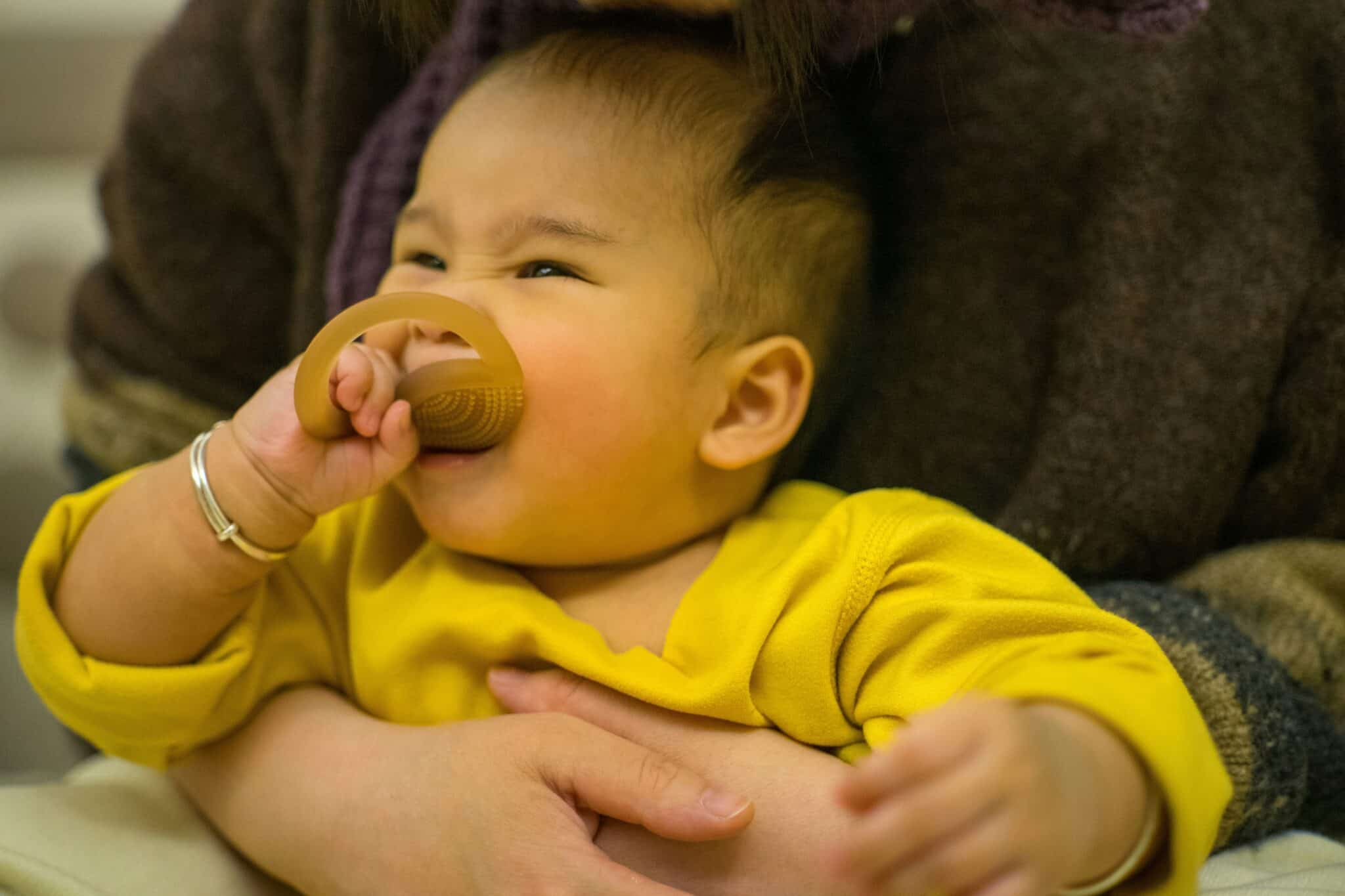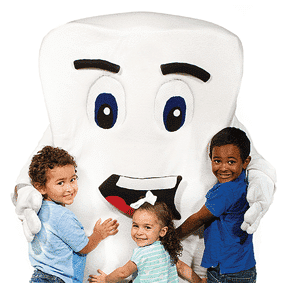Teething is a major milestone in your baby’s development, but it can also be a challenging time for both little ones and their caregivers. Even though teething is a natural process, it often comes with discomfort, drooling, crankiness, and sleepless nights. The following is a guide to help you navigate this stage of your child’s development, equipping you with information about what is normal during teething along with the safest, most effective ways to soothe your baby’s tender gums.
When Does Teething Start?
Most babies begin teething around six months of age, though it can start as early as three months or as late as twelve months. The bottom front teeth (lower central incisors) are usually the first to emerge, followed by the top front teeth. By the time your child is about three years old, they will typically have a full set of twenty baby teeth.
Common Signs of Teething
Every child is different, but the most common symptoms of teething include:
- Increased drooling
- Chewing on fingers or objects
- Swollen or tender gums
- Irritability or fussiness
- Disrupted sleep or naps
- Slight rise in temperature (not higher than 100.4°F)
Important: A high fever, rash, or diarrhea are symptoms that are unlikely caused by teething. It is a good idea to check with your pediatrician to rule out anything more serious if your baby is experiencing these symptoms.
Safe Ways to Soothe Your Baby’s Gums
1. Use a Clean, Cold Washcloth
Dampen a washcloth with water and put it in the refrigerator (not freezer) to chill. Once it is has chilled, let your baby gnaw on it to help numb the gums and reduce inflammation.
2. Offer a Chilled (Not Frozen) Teething Ring
Chilled rubber or silicone teething toys are great for soothing sore gums. Avoid freezing teething toys because they become too hard and may damage your baby’s gums when chewed.
3. Massage Their Gums
Gently rub your baby’s gums with a clean finger. Gentle pressure can provide temporary relief and comfort.
4. Try Cold Foods (For Babies Eating Solids)
If your baby has started eating solid foods, offer chilled foods like cold applesauce, yogurt, or a cool mashed banana to provide relief.
5. Extra Snuggles and Distraction
Sometimes the best remedy is comfort. Rocking, cuddling, or playing with your baby can help distract them from the discomfort.
What to Avoid During Teething
Avoid topical numbing gels with benzocaine
The FDA advises against using benzocaine-based numbing gels in children under two. This is because they can cause serious health risks, including a rare but potentially life-threatening condition called methemoglobinemia.
Do not use teething necklaces or amber beads
These pose choking and strangulation risks and are not recommended by pediatric or dental professionals.
No frozen items or hard foods
Avoid giving frozen items or hard foods like raw carrots. Freezing items can make them too hard, which may hurt your baby’s sensitive gums or increase the risk of choking.
When to See a Dentist
Your baby’s first tooth is a sign for you to schedule their first dental visit. The American Academy of Pediatric Dentistry recommends that children visit a dentist by age one, or within six months of their first tooth erupting.
Early dental visits help the following:
- Establish healthy habits
- Monitor dental development
- Prevent future problems
- Keep parents informed about care routines and nutrition
At Tebo Dental, our pediatric specialists make these first visits fun, educational, and stress-free.
Teething Timeline
| Tooth Eruption | Approximate Age |
| Lower Central Incisors | 6-10 months |
| Upper Central Incisors | 8-12 months |
| Upper Lateral Incisors | 9-13 months |
| Lower Lateral Incisors | 10-16 months |
| First Molars | 13-19 months |
| Canines (Cuspids) | 16-22 months |
| Second Molars | 23-33 months |
Key Takeaways
At Tebo Dental, we are here to help you through every stage of your child’s dental development—from the emergence of their first tooth to the progression of their smile through their teen years.
Teething can be uncomfortable for your child, but it is only a temporary stage in their development. Knowing what to expect and how to offer relief can make this stage much more manageable for you and your little one.
Is your baby teething? Schedule their first dental checkup today with Tebo Dental and get your child’s oral health journey started off on the right foot!





